Screen of Consciousness: An Amusement Column by Harry Haun . . .
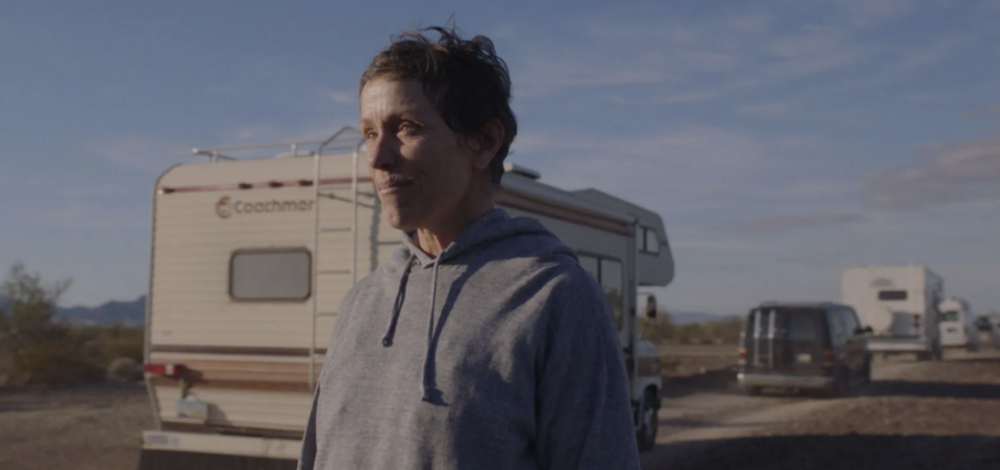
You know you’re in a pandemic when the movies up for Oscars come to you rather than you going to them in a movie theater. Remember movie theaters? They all faded to dark around mid-March of last year, and it has virtually been virtual ever since. You don’t have to leave your office to be entertained. Either cable is streaming or kind movie publicists are providing screening links.
It hasn’t been easy assessing a screen season through this haze. The New York Film Critics, holding to their hard-and-fast rule of judging movies released from Jan. 1 to Dec. 31, voted on Dec. 18 and came up with a modest lists of Bests that you may never have heard of—First Cow, Bacurau,Never Rarely Sometimes Always, The Forty Year Old Virgin—the sort of films that are celebrated on Oscar eve at the Independent Spirit Awards ceremony. Fortunately, the Golden Globes and the Oscars marked time and were able to take a wider net for more popular pictures. One thing the New York critics and the Hollywood Foreign Press Association, who hand out the Golden Globes, have in common is in their choice of Chloe Zhao, a relatively unknown Chinese woman, for Best Director of the Year for Nomadland. Odds are Oscar will favor her and her film. I discovered Zhao with her second feature, a heartfelt sleeper called The Rider. While researching her first film (2015’s Songs My Brothers Taught Me), she visited the South Dakota ranch of Brady Jandreau. He taught her how to ride a horse, and she wanted to put him in one of her movies. When he later suffered life-changing head injuries while cowboying, she knew his ordeal would be her next movie—hence: The Rider, the story of Brady Blackburn’s search for a new identity. Her third film, Nomadland, has this same sort of documentary-like imitation of life. Frances McDormand plays a widow named Fern, a 60’s-something wannabe vagabond who has lost everything in the Great Recession. One fine day, she hops in the white van she calls Vanguard and strikes out for nowhere in particular. Along the way, she encounters a host of rootless nomads (played by nonprofessional actors who operate under their real first names). McDormand, of course, fit in with this company so well she was even offered a job at a local Targets store. The only actor to show up is David Straitharn (Dave), who makes a fumbling, ineffectual play for her. As an epic of social distancing, Nomadland gives off a forlorn chill— a true sign of these isolated times. In addition to producing and directing, Zhao also adapted the script and edited it. (There could be Oscars there, too.) Only two people ever attempted all four of these jobs on one film: McDormand’s husband, Joel Coen, and his brother, Ethan, doing No Country for Old Men.
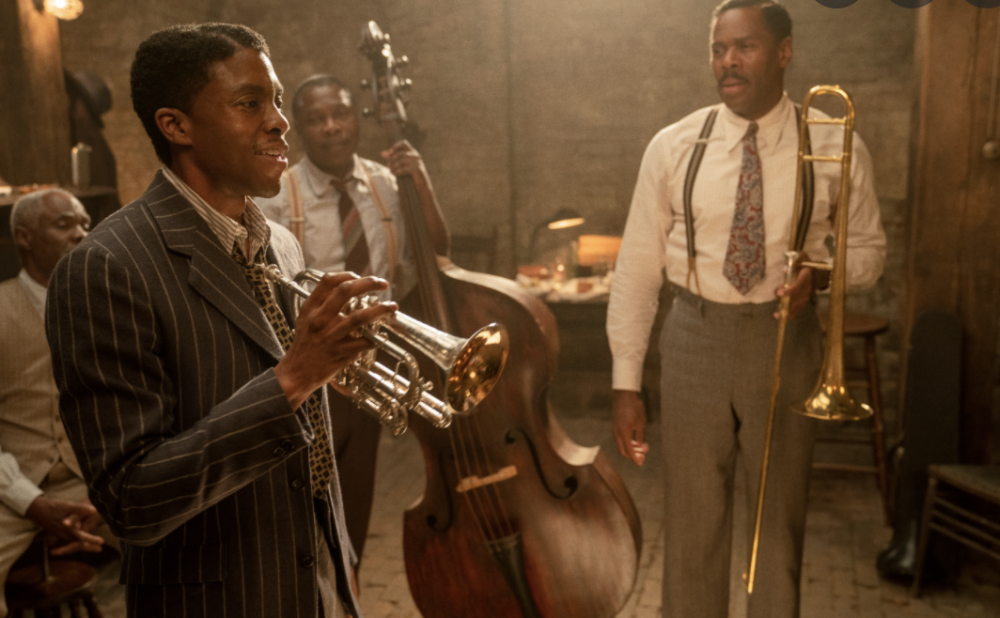

The Best Actor competition boils down to Anthony Hopkins in Florian Zeller’s The Father versus Chadwick Boseman in August Wilson’s Ma Rainey’s Black Bottom and lists more toward the latter. Hopkins is following Frank Langella’s Tony-winning act of a well-to-do octogenarian in the opening throes of dementia, and Boseman is following Charles S. Dutton’s Tony-nominated turn as an upstart trumpeter who wants to break with Ma Rainey’s band and form one of his own. Should Hopkins win, he will be the oldest performer ever Oscared–at 83, he’ll be a year ahead of the record that Christopher Plummer set back in 2010 when he won for his support in Beginners—but the likely winner will be Boseman (for reasons more than his performance here). He died of colon cancer last August at the age of 43. During his last five years when he was being treated for the disease, he enjoyed an extraordinary run of iconic African-Americans (Jackie Robinson, James Brown and Thurgood Marshall)—plus a superhero worthy of worship, T’Challa in Black Panther. An Oscar would salute all that and acknowledge a talent taken away too soon. No better African-American actress is working in films and television today than Viola Davis.
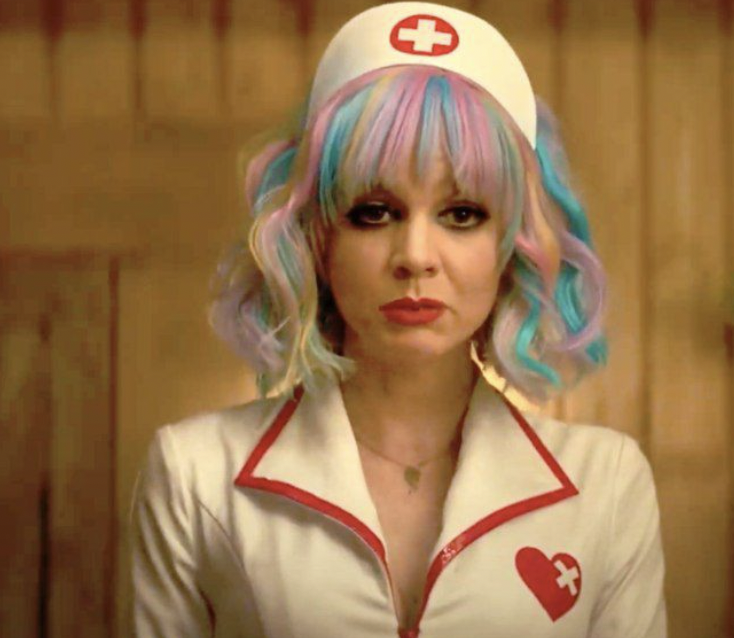

Exhibit A: Ma Rainey’s Black Bottom, where she labors mightily to prove she is as broad-beamed and bullying as the blues singer of the title. It’s a triumph of miscasting, and if she wins the Oscar for that, there will be no complaints from this department. There’s real art in her camouflaging. It’s just that I prefer the revenge-driven mantrap that Carey Mulligan displays in spades in Promising Young Woman. This is unlike anything she has ever done. Usually, she makes a specialty of beguiling innocence. In her previous (2004) Oscar bid, she was a teenager who learns from her mistakes with a much older man in An Education. When she made her Broadway debut in The Seagull, her Nina arrived on stage a breathless flurry of girlish exuberance (SPOILER ALERT: having got that way from tearing up and down the fire escape and racing all over the theater right before she made her entrance). Her Promising Young Woman promises one thing and delivers something quite different. The sudden shifting of gears is sharp and startling.
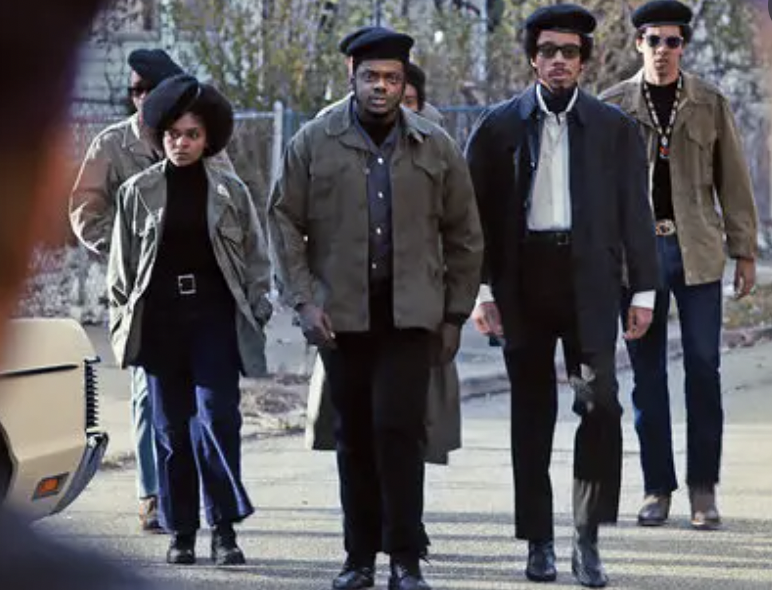

Lakeith Stanfield and Daniel Kakuuya split the title roles in Judas and the Black Messiah but awkwardly share the same Best Supporting Actor category. Basically, it’s Stanfield’s story–how the FBI forced Bill O’Neal to betray Black Power firebrand Fred Hampton, a character who appears (even more briefly) in another Oscar-contending Best Picture, The Trial of the Chicago 7—but it’s Kakuuya’s passion and charisma that pulls focus back to him. You can see the wheels turning behind those large eyes. It was particularly apparent in his other Oscar-nominated bid (Get Out) when he was so aware his life was in danger. Here it is again, and he doesn’t know it. Kakuuya is pretty much a slam-dunk for supporting actor. Leslie Odom, Jr., the Hamilton Tony winner, is the long-shot alternative in this category for his performance of Sam Cooke in One Night in Miami. He’ll have better luck with the Best Song Oscar for that film: “Speak Now.”
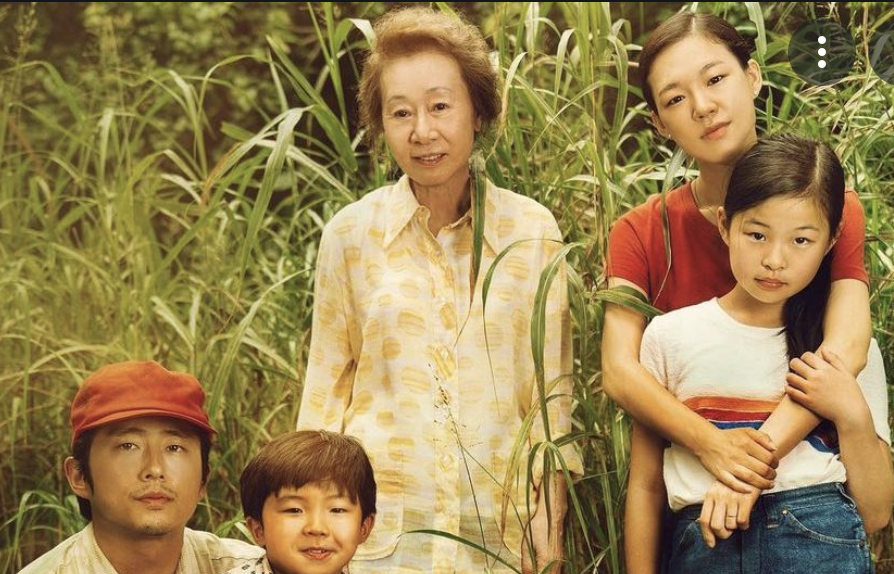

The Best Supporting Actress race is a battle of grandmas: Youn Yuh-jung, in a completely Korean performance in Minari, and Glenn Close, as a wise and feisty mountaineer matriarch in Hillbilly Elegy. From here, it is starting to look like Close’s eighth (!) unsuccessful shot at the Oscar. Yuh-jung is this year’s Miyoshi Umeki, an Asian unknown who charms her way to the Oscar. Her character comes from South Korea and makes a place for herself with this transplanted family in Arkansas. Most of her scenes involve finding a level cf comfort with her skiddish seven-year-old grandson (Alan Kim). That grandson grew up to be the film’s writer-director, Lee Isaac Chung. Although admittedly autobiographical, the picture resembles Jean Renoir’s Oscar-nominated saga about a family of cotton-pickers, The Southerner.
Mank is the sort of picture that separates the movie historians from the boys. The title is short for Herman J. Mankiewicz, co-author of Citizen Kane and 94 other screenplays, and the film is chock full of those kinds of behind-the-scene Hollywood “stars” interacting like magpies at San Simeon—William Randolph Hearst (Charles Dance), Louis B. Mayer (Arliss Howard), Irving Thalberg (Ferdinand Kingsley), Orson Welles (Tom Baker), John Houseman (Sam Troughton), David O. Selznick (Toby Leonard Moore) and that ilk. Gary Oldman in the title role and Amanda Seyfried as Hearst’s mistress, Marion Davies, made the Oscar running. The film is photographed in black and white, lest you forget, and, even with that crippled state, it stands a good chance of taking the Oscars for Best Cinematography, Best Costume Design and Best Production Design. Nominated director David Fincher worked from the one and only screenplay of his father, Jack Fincher, who died in 2003. It throws a bigger canvass than just the making of Citizen Kane. Much of it will seem inactive to average moviegoers, but the knowing will pick up on secret intrigues.
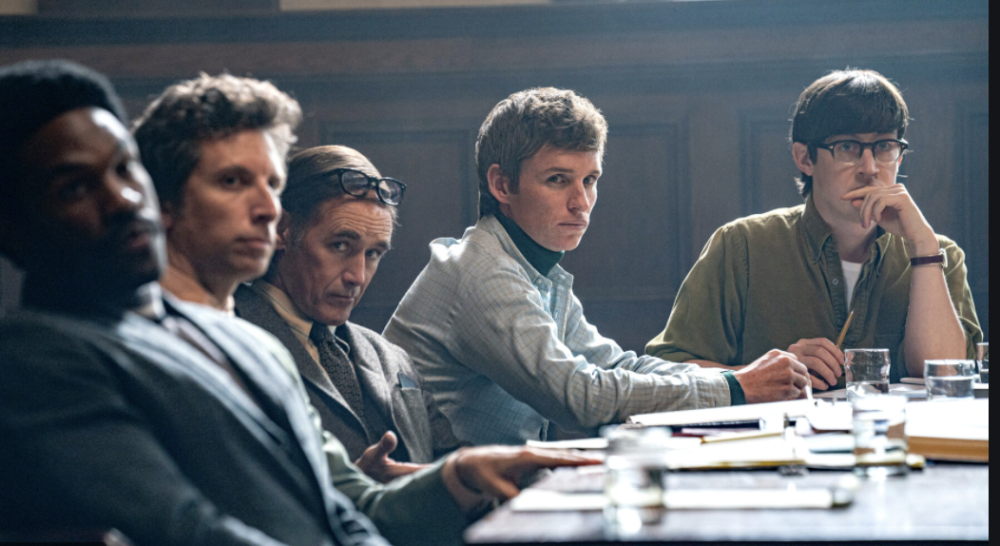

The Trial of the Chicago 7 is the year’s big courtroom movie among the Best Picture contenders, based on court records and directed by Aaron Sorkin, who took over the project from Steven Spielberg. When the latter was in charge, he wanted Heath Ledger to play Tom Hayden and Will Smith to play Bobby Seale. (Ledger died the morning of his meeting with Spielberg.) Yahya Abdul-Mateen II wound up doing the Seale role. Jeremy Strong replaced Seth Rogan as Jerry Rubin, and John Doman replaced William Hurt as John Mitchell. Four Brits were admitted to the very American mix: Eddie Redmayne, Mark Rylance, Alex Sharp and Sacha Baron Cohen. The company’s only acting nomination went to Cohen’s portrayal of Abbie Hoffman. Rounding out the eight Best Picture candidates is Sound of Metal, and it’s a sure win in any category that leads with the word sound (i.e., Best Sound and Best Sound Editing). It netted two actors for nominations.
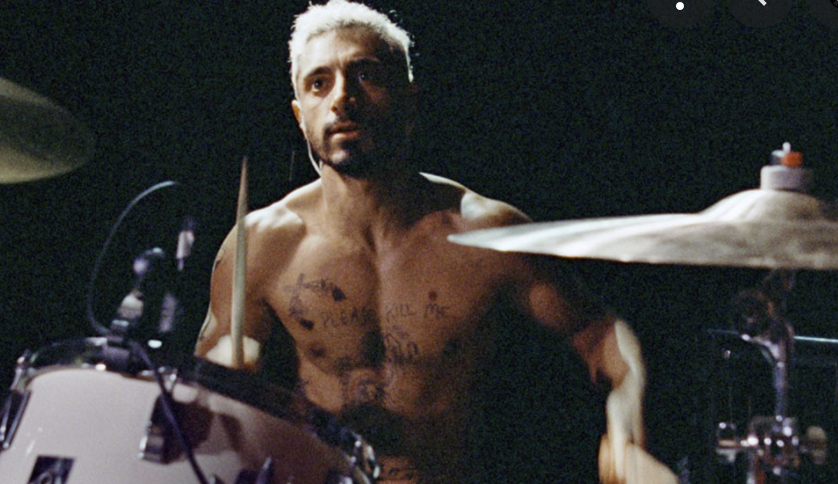

Riz Ahmed, who was just Emmy-nominated for The Night of . . ., is now up for a Best Actor Oscar as a drummer in a punk-metal band driven deaf by his work. Nominated for support is Paul Raci, who runs a commune for recovering deaf addicts that Ahmed attends.Soul, a Pixar contemplation on the meaning of life and all that jazz (nevertheless, for the young), looks certain to take the prizes for Best Animated Feature Film and Best Original Score. Another Round (known in Denmark as Dunk for “drinking” or “boozing’) tells of four high school teaching pals who try to improve their lives by maintaining a constant level of alcohol in their blood. This goes roughly the way you think, but it earned Thomas Vinterberg a well-deserved Best Director nomination and it should land him the Oscar for Best International Feature Film.Its closest competition appears to be the Bosnia-Herzegovina entry, Quo Vadis, Aida, where a UN translator protects her husband and sons from the invading Serbian army. When it develops the men of the village are being rounded up to be killed, the rest is a harrowing roller-coaster ride.
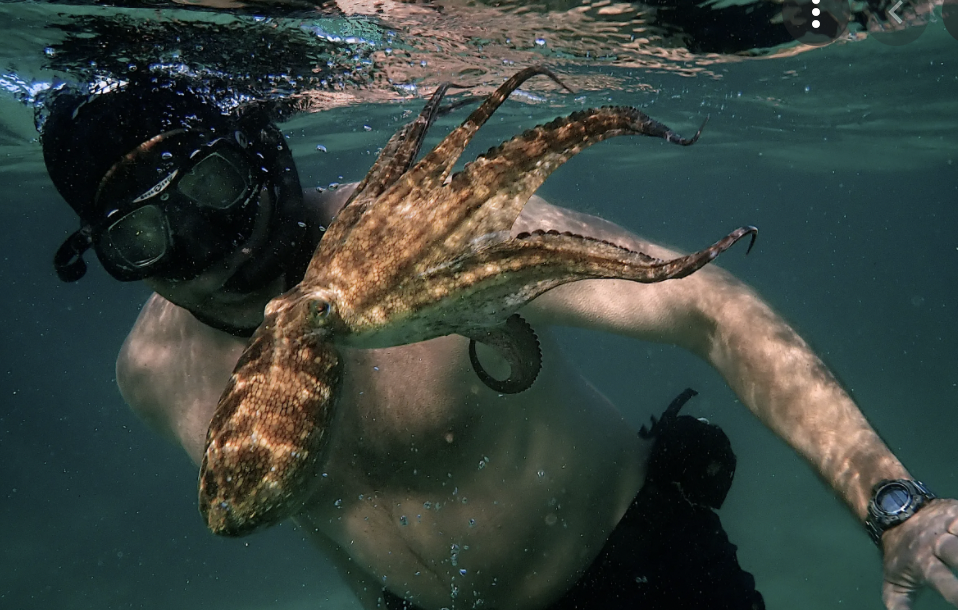

Likely to win the Best Documentary Feature Oscar on gorgeousness alone is My Octopus Teacher, which chronicles the year-long relationship that filmmaker Craig Foster has with an octopus in a South African kelp forest. Not to influence voters, but there’s also Crip Camp, an inspiring film executive-produced by Barack and Michelle Obama about teen campers with disabilities who become activists for the disability rights movements and fight on for accessibility legislation. Best guess for the rest: Tenet for Best Visual Effects, Ma Rainey’s Black Bottom for Best Hair and Makeup, Two Distant Strangers for Best Live Acting Short Film, A Love Song for Latasha for Best Documentary Short Subject and If Anything Happens I Love You for Best Animated Short Film.

















